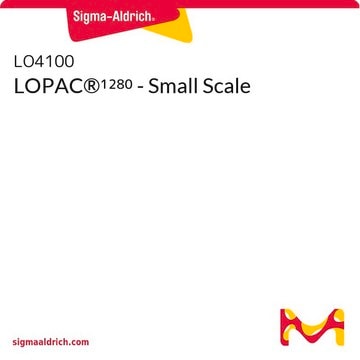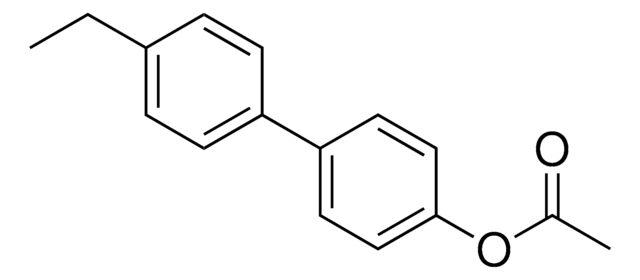LO4200
LOPAC®1280 - Small Scale
International Version
Synonym(s):
Library of Pharmacologically Active Compounds - small scale
About This Item
Recommended Products
Looking for similar products? Visit Product Comparison Guide
General description
Application
Features and Benefits
- Apoptosis
- G Proteins & Cyclic Nucleotides
- Gene Regulation & Expression
- Ion Channels
- Lipid Signaling
- Multi-Drug Resistance
- Neurotransmission
- Phosphorylation
- Structure
- Primary Name
- Secondary Name
- Pharmacological Activity
- Product Number
- Rack Position
Other Notes
Legal Information
Signal Word
Danger
Precautionary Statements
Hazard Classifications
Acute Tox. 2 Dermal - Acute Tox. 2 Inhalation - Acute Tox. 2 Oral - Aquatic Acute 1 - Aquatic Chronic 1 - Carc. 1A - Eye Dam. 1 - Lact. - Muta. 1B - Repr. 1A - Resp. Sens. 1 - Skin Corr. 1B - Skin Sens. 1 - STOT RE 2 - STOT SE 2
Storage Class Code
6.1A - Combustible acute toxic Cat. 1 and 2 / very toxic hazardous materials
Flash Point(F)
188.6 °F
Flash Point(C)
87 °C
Certificates of Analysis (COA)
Search for Certificates of Analysis (COA) by entering the products Lot/Batch Number. Lot and Batch Numbers can be found on a product’s label following the words ‘Lot’ or ‘Batch’.
Already Own This Product?
Find documentation for the products that you have recently purchased in the Document Library.
Customers Also Viewed
Articles
Explore compound library screening options with our Pharmacologically Active Compounds portfolio.
Explore compound library screening options with our Pharmacologically Active Compounds portfolio.
Explore compound library screening options with our Pharmacologically Active Compounds portfolio.
Explore compound library screening options with our Pharmacologically Active Compounds portfolio.
Our team of scientists has experience in all areas of research including Life Science, Material Science, Chemical Synthesis, Chromatography, Analytical and many others.
Contact Technical Service














